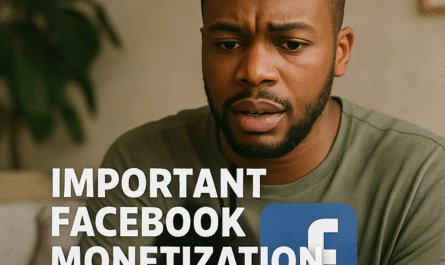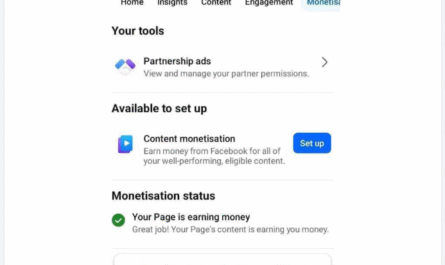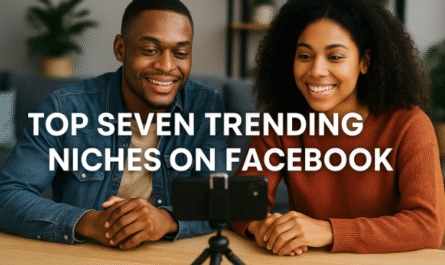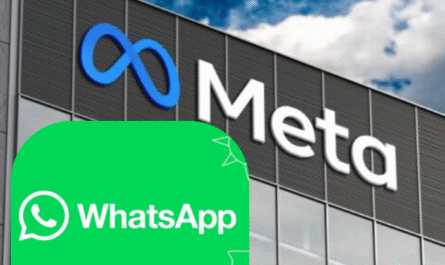In 2004, Mark Zuckerberg together with his college friends founded Facebook. The platform quickly gained popularity, eventually becoming Meta, one of the most valuable companies in the world. But that entire empire seems to be on the verge of collapse. Meta could be forced to sell Instagram, if the Federal Trade Commission (FTC) wins its ongoing antitrust case.
In 2020, the FTC filed a lawsuit against Meta for monopolistic practices. Meta CEO Mark Zuckerberg has testified in the antitrust lawsuit filed by the Federal Trade Commission. He took the stand in the first day of Meta’s FTC antitrust trial, focusing on the company’s acquisition of Instagram and WhatsApp. With nearly $116 billion in revenue from digital advertising, Instagram and WhatsApp represent a substantial portion of the company’s income. And they have since grown both Instagram and WhatsApp into multi-billion user platforms.
The FTC alleges that Meta’s acquisitions of Instagram and WhatsApp were anti-competitive, aiming to eliminate potential rivals. If Meta loses the case against the FTC, it could be forced to sell Instagram and WhatsApp, resulting in losses of billions of dollars. If the social media giant loses, it could be forced to break itself apart and sell off both of those popular platforms, including Instagram, which is projected to make up more than half of the company’s ad revenue this year.
READ ALSO:
- Very Important Facebook Monetization Update
- How to Unlock Facebook Content Monetization Setup
- Everything You Need to Know About Meta’s New WhatsApp Monetization Features Update
So how did Meta go from being a startup to a social media empire? And what would the implications be for the company, if it loses the case against the FTC?
In February 2004, Mark Zuckerberg launched Facebook from his dorm room at Harvard University. What began as a college social network quickly turned into a global phenomenon.
“Harvard didn’t have a Facebook, so that’s the gap that we were trying to fill. And now we’re at 100,000 people”…… According to Mark.
By the end of 2004, Facebook already had over 1 million registered users. This rapid growth created new jobs in programming, data management, and digital marketing, marking the beginning of a new era for tech-related work. In less than five years, Facebook surpassed 200 million users and attracted over $500 million in venture capital investments.
Millions of students use the Facebook.com to list not only their pictures and hobbies, but as a virtual community. These figures foreshadowed its central role in the digital economy and the U.S. labor market, which was increasingly shifting toward tech platforms.
In April 2012, Facebook acquired Instagram for approximately $1 billion. The platform, which at the time had just 30 million users and was not generating significant revenue, represented a strategic bet to consolidate Facebook’s dominance in the mobile and visual spheres. Instagram, a company with only 13 employees, bought by Facebook for $1 billion.
This acquisition not only boosted Facebook’s market value, but also fostered the growth of new tech jobs related to artificial intelligence, image processing, and digital advertising.
By 2012, the tech industry already accounted for over 7% of the U.S. GDP, equivalent to hundreds of billions of dollars, and employed more than 6 million people. Facebook is making a major move into mobile.
The social media behemoth also bought the messaging company, WhatsApp. Facebook pay $19 billion in cash and stock. At the time, the messaging platform had over 450 million monthly active users, most of them outside the United States. The impact was immediate.
The purchase not only strengthened Facebook’s digital ecosystem, but also expanded its global influence, forcing the U.S. job market to adapt to a new digital landscape. Thousands of tech jobs were created related to encryption, cybersecurity, data analysis, and large-scale user management. The information technology sector, driven by transactions of this scale, had already surpassed $1.5 trillion in combined market capitalization.
In October 2021, Facebook changed its corporate name to Meta Platforms. Facebook changed its branding with a new name and logo.
“I am proud to announce that starting today, our company is now Meta”…..Words from Mark Zuckerberg.
The change reflected its new focus on developing the Metaverse, an immersive vision of the Internet’s future. This move sought to unify its platforms under a single identity. The initial investment in the development of the Metaverse exceeded $10 billion annually, and Meta projected the hiring of over 10,000 engineers in Europe to build this infrastructure. The impact on tech jobs was significant. New roles emerged in augmented reality and the digital economy.
By 2021, the U.S. tech job market employed over 8.5 million people, accounting for 10.2% of all private sector employment. In 2022, major tech companies amassed combined valuations exceeding $8 trillion, with a direct impact on millions of jobs. Meta alone generated annual revenues above $115 billion and maintained a global workforce of over 80,000 employees.
The temporary tech job market in the U.S. reached a value of $43.2 billion in 2024, representing a 5% increase from the previous year. However, all this growth has been accompanied by various criticisms from regulators.
In December 2020, the United States Federal Trade Commission and attorneys general from 46 states filed a lawsuit against Meta. They accused it of illegally maintaining a monopoly in the social media sector through anti-competitive practices, including buying potential rivals like Instagram and WhatsApp.
Federal and state regulators are accused Facebook of systematically snapping up its smaller rivals before they can turn into true competitors, as well as restricting access to third-party developers that they view as a threat.
In recent months, a rapprochement has been observed between Mark Zuckerberg and President Donald Trump. But it was never like this. The relationship between Mark Zuckerberg and Donald Trump was marked by tension and mutual distrust.
In 2018, Trump accused Facebook of censoring conservative voices, while Zuckerberg viewed with suspicion the former president’s use of social media to polarize and spread misinformation. This change in their relationship comes at a time when Meta is facing an antitrust trial that challenges the acquisitions of Instagram and WhatsApp.
In November 2024, Zuckerberg met with Trump, and in January 2025, he attended the presidential inauguration. During this period, Meta implemented changes in its content policies, including the elimination of its fact-checking program. Additionally, the company relocated its content moderation team from California to Texas. Analysts have interpreted these actions as an attempt by Meta to improve its relationship with the new administration and reduce regulatory tensions.
This trial could have far-reaching implications for Meta and the tech sector in general. If the court rules against the company, it could be ordered to sell Instagram and WhatsApp, which would not only affect Meta’s corporate structure, but also the digital ecosystem it has built. Moreover, it would set an important precedent in the regulation of major tech companies, potentially limiting future acquisitions and promoting greater market competition.
On the other hand, if Meta successfully defends its actions, it could further consolidate its position in the tech sector. This would allow it to continue expanding, generate billions in revenue, and create new tech jobs. However, it could also face increased public and regulatory pressure to ensure fair and transparent business practices.
The outcome of this trial could redefine the future of the U.S. labor market and the tech job ecosystem. It could do so by establishing new boundaries for the expansion of digital giants and rebalancing competitive dynamics.





